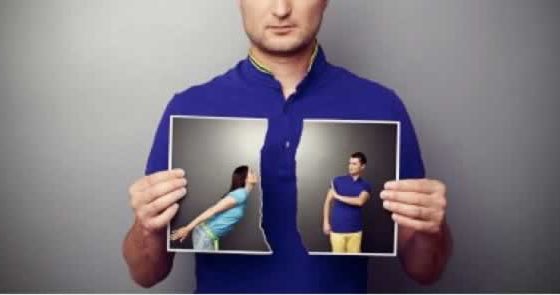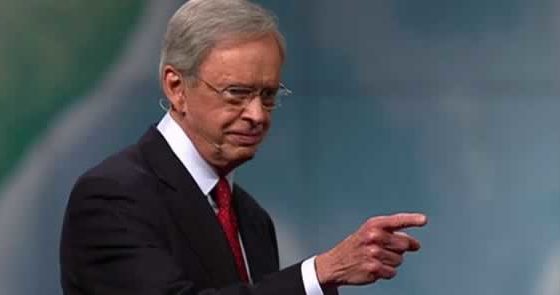What’s unique about the perspective a journalist can bring to theological questions?
Journalists are trained to ask the questions that typical readers would ask if they were given the opportunity to interview experts. Through my books The Case for Christ and The Case for Faith, I confront leading evangelical thinkers with the kind of skeptical objections that are shared by many people.
As a result, these scholars are forced to give cogent and understandable arguments to support their opinions and conclusions. This brings complex theological concepts and historical issues down to an accessible level, which I think is a valuable service.
How do you respond to someone who argues that you sought evidence to support your opinion?
Both The Case for Christ and The Case for Faith retrace and expand upon my own personal journey from atheism to Christianity. At the time of my original investigation into these issues, I was a skeptic. I explored not only Christianity, but other faith systems in my quest for answers. Eventually, I was convinced by the evidence that Christianity is true.
Given that background, it’s hard to argue that I was merely seeking to shore up pre-conceived notions. Even though I was a Christian when I wrote the books, I was writing from the mindset of someone who had been an authentic skeptic and yet had found a credible basis for faith in Jesus.
What conclusion did you reach after your research for The Case for Christ?
Essentially, I concluded that based on the cumulative weight of the evidence, it would require more faith for me to maintain my atheism than to embrace Jesus as being God’s unique Son!
What’s the most compelling evidence you found to support this conclusion?
It’s difficult to isolate one fact or argument that clinched it for me. There is a conspiracy of evidence that powerfully points toward the truth of the Christian faith.
The evidence undergirding the Resurrection is certainly convincing. And the post-Resurrection transformation of the disciples – from cowards to heroes who were willing to die for their conviction that Jesus rose from the dead – is extremely compelling, especially when bolstered by the examples of such skeptics as James and Saul. But what I love about the case for Christianity is that it builds and builds and builds as a seeker continues to dig and dig and dig for answers.
ABC’s Peter Jennings pursued many of the same questions, but his “Search for Jesus” rendered a different picture. Why is that?
I was very disappointed by Jennings’ investigation, since it relied disproportionately on liberal historians in the tradition of the Jesus Seminar and ignored many thoughtful evangelical scholars like D. A. Carson, Craig Blomberg, Ben Witherington III, William Lane Craig, Bruce Metzger, and others whom I interviewed for The Case for Christ.
I think he focused too much on side issues, such as what Jesus looked like, and failed to delve more fully into the really pivotal topics, such as the Resurrection. In the name of “balance,” he gave equal weight to opinions that were mere ideas and those that were backed by solid evidence.
In contrast, I took many of the key arguments of the Jesus Seminar and contemporary atheists and forced scholars to provide meaningful answers. I leave it up to the readers as to whether they succeed, but my opinion is that they did so admirably.
How is The Case for Faith different than The Case for Christ?
The Case for Christ presents the historical evidence that points toward the conclusion that Jesus is the unique Son of God. The Case for Faith uses a similar format to deal with the “Big Eight” objections to Christianity. They are:
Since evil and suffering exist, a loving God cannot Miracles contradict science, so they can’t be true God isn’t worthy of worship if He kills innocent children A loving God would never torture people in hell It’s offensive to claim Jesus is the only way to God Evolution explains life, so God isn’t needed Church history is littered with oppression and violence If a person has doubts, he or she cannot be a Christian To get thorough, thoughtful, and satisfying answers, I interviewed some excellent thinkers, including Peter Kreeft, Ravi Zacharias, Norman Geisler, John Woodbridge, William Lane Craig, J. P. Moreland, Dallas Willard, and others.
Also, this is as much of a “heart” book as it is a “head” book. Woven through the chapters is the story of Charles Templeton, who was Billy Graham’s pulpit partner before doubts chased away his faith and he became an agnostic.
The book opens with what I think is a very moving conversation with Templeton about why he abandoned Christianity. It turns out his objections to the faith paralleled the ones I had when I was a skeptic.The book goes on to unfold answers to these issues – not simplistic responses, but in-depth and credible explanations.
Personally, I think the scholars succeeded in knocking down the objections.
Copyright © 2005 Zondervan Church Source, used with permission.
Former atheist Lee Strobel has been a teaching pastor at two of America’s largest churches and is the best-selling author of three Gold Medallion-winning books: The Case for Christ, The Case for Faith, and Inside the Mind of Unchurched Harry and Mary.
After a two-year investigation of the evidence for Jesus, Lee received Christ as his forgiver and leader in 1981. He joined the staff of Willow Creek Community Church in South Barrington, IL, in 1987, and later became a teaching pastor there. He joined Saddleback Valley Community Church as a teaching pastor in 2000, speaking regularly to the 15,000 people who attend the Orange County, CA, church. He left Saddleback’s staff in mid-2002 to focus on his writing and development of a TV show, though he continues as a periodic speaker there and at Willow Creek. He also is a board member of the 7,000-member Willow Creek Association.











